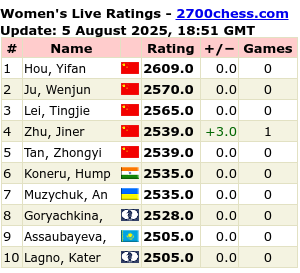Lord of the Rings chess set
Winnie the Pooh-chess set.
Sometimes you can get kids into chess if they play with themes-based chess sets. Little ones find it funny. I’ve found a few. These are chess sets with themes based on story book tales and other fictional literature. Please click here to view more or to order one of these sets. On the left bar – of this link – you can click on ‘themed chess sets’ to view even more.
I’ve done an entry about chess in the movies before. On this link you can read my entry about chess in the movies. More than 1700 movies have used chess and it seems to me the movies do love chess! On this link you can read about the chess game in “Alice through the looking glass” and also read about Alice in Wonderland..the real Alice too. On my Chess Humour-page, you can see Steve McQueen and Faye Danaway in the famous chess scene from the movie: The Thomas Crown affair, 1968.
Martie Preller is an Afrikaans writer. I don’t have to say too much about her as you can only look at all her awards and know that she’s one of South Africa’s brilliant writers of fiction in Afrikaans as well as in English. She has published more than 50 books – the titles are on her website too. She also has written the Balkie-series, a very popular series in South Africa available in English too. She has sent me some scanned images from her books where chess is featured. Her own son is also a chess player. I have for you some extracts from her books and in particular from an English story too. This story hasn’t been published as yet and she’s hoping to find an overseas publisher willing to publish her book. The title of the story is: “The face of Ilev”. Near to the end in this story you read about chess.
Please click here for Martie Preller’s website.
Awards
1994: Silver Sanlam Award for Youth Literature for Anderkantland
1996: ATKV Children’s Book Award for Daar’s ‘n spook in my kas
1996: ATKV Children’s Book Award for Jy en Toetenkat
1996: C.P. Hoogenhout Medal for Anderkantland
1996: Sanlam Award for Youth Literature for In die tyd van die Esob
1998: In die tyd van die Esob is added to the Honours Role of IBBY (International Board on Books for Young People)
1999: Runner-up in competition for short fiction (De Kat & Human & Rousseau)
2001: Alba Bouwer Award for Children’s Books for Die Balkieboek
2002: ATKV Children’s Book Award for Die Balkieboek
2003: Tienie Holloway Medal for Babalela and Lisa het ‘n plan
2004: M.E.R Award for Children’s Literature for Ek is Simon
2006: Tienie Holloway Medal for Diep, diep in ‘n donker bos
Die hart van Zeebak
I have copied Martie’s quotes as sent to me. Some in Afrikaans, some in English. Please visit her website for more information and her CV in both languages.
Hart van Zeebak:
Ferdinand en Ben is ‘n tweeling en na ‘n ongeluk is Ben verstandelik gestrem. Ben was die uitblinker en Ferdinand die stiller ou. Na Ben se ongeluk, ignoreer al die maats ens hom natuurlik en skielik is Ferdinand baie belangrik vir almal ens ens. NOU is hy cool. En hy voel ook hy moet “opmaak” vir Ben wat nou niks meer kan doen nie ens. Ferdinand probeer deal deur met sy fiets in die bosveld te gaan ry ipv om soos sy maats na matriek see toe te gaan. Toe beland hy in die dorpie – waar hy skaak speel en leandra hom kom weglok na ‘n ander planeet. Later kom hy weer terug. Praat weer met die ou man ens. Dus gaan dit eintlik oor skaak en die manier van speel en keuses ens. As ‘n beeld van die lewe ens.Bladsy 19 – Die hart van Zeebak
“Hy kyk om hom. ‘n Paar tafeltjies met verbleikte rooi-en-wit geruite tafeldoeke. By ‘n tafeltjie in ‘n hoek sit ‘n ou man met ‘n skaakstel klaar uitgepak op ‘n skaakbord voor hom. Die ou man kyk na hom, glimlag en beduie met sy kop na die skaakstel. Hoekom lyk hy so bekend? wonder Ferdinand.
-nog skaakverwysings kan op bladsye 96-101 gevind word.
These 3 images are scanned images from her Afrikaans story: Die hart van Zeebak. [The heart of Zeebak]- click on the images for a larger view.
Summary of Esob in IBBY’s catalogus:
“In die tyd van die Esob (In the Time of the Evil) is a science-fiction novel set somewhere in the future after the collapse of civilization.
Against the backdrop of a technocratic regime ma¬nipulated by an evil, coldblooded man and his android minions, each of four young people strives to be the win-ner in a competition that tests their physical, mental and survival skills. The main protagonist, Nina, takes the reader with her on an odyssey of shifting realities and transmuting landscapes that test her belief in reality, the meaning of existence and herself. It is a harsh and frustrating journey during which she has to learn to discern good from evil. In a time of unnatural colonization and brainwashing she has to learn the meaning and value of human emotions.
The book celebrates the strength and endurance of the human spirit. It is structured in a post modernistic way by means of a multi-layered perspective as three different narrators who may or may not be the same person, narrate the story.”
Extract:
THE FACE OF ILEV
by
Martie Preller
– a free translation of
“In die tyd van die Esob”
(In the time of the Esob)
by the author
* “Bose” is the Afrikaans word for “evil” – I spelled it backwards in the original text. The “Esob” is a character in the story. As I could not use “evil” spelled backwards in English, I used the word “Ilev” as the name of this character.
© Martie Preller 2005
We all knew that we were the chosen ones. What we did not know was that that year would be different. Completely different from all previous years.
I knew Daniel, Leonard and Matilda well. I knew their weak points. We had lived together for three years. We had lived and learnt.
The competition in die Training School was fierce. Only the best came out on top. In the first year, there were forty candidates, the next year only twenty and the final year, there were only ten and of those ten, it was undisputed that Daniel, Leonard, Matilda and I would be chosen. We were the best by far.
But the formal announcement had not been made yet. Perhaps I should start my story there: on the day that Zufar and Zandra did the announcement: the day of the fiery red sun.
*****
The amphitheatre glowed in the rays of the red sun. Our two pale round moons hung just above the two dark brown pillars of Odgo, one moon on each side of the entrance to the amphitheatre. The invited guests filled all the seats. The uninvited had to watch the ceremony on their screens.
The Winners of the previous years sat in the front row. They were wearing their red cloaks over their grey tunic suits This was the day, the long-awaited day.
Everyone was quiet. Our people never spoke unless it was necessary. We, the ten of our final year, stood behind the stage waiting for Zufar and Zandra to start the ceremony. We did not speak either, because there was nothing to say.
Daniel kept on throwing his cloak back over his shoulder. Leonard looked as if he was listening to a silent voice, his head slightly turned, with a frown on his face. Matilda was fiddling with her cloak’s tassels. The other six were just standing there. They would not exchange their grey cloaks for white ones. And they knew it.
The drums started rolling. It started as a soft murmur that grew and grew until it filled the amphitheatre with a sound so loud that it filled your head completely and then the drums waned until everything was quiet again. Zufar’s deep voice boomed through the amphitheatre. He talked in his usual staccato way. He irritated me today. When I was young, he was so impressive. Now he was just Zufar.
Then it was Zandra’s turn to speak. Her drawl would not let go of the words as if she wanted to keep them to herself. Her face was half hidden behind a turban that she wore low over her forehead. Zufar and Zandra were reciting the opening words. They too were Winners, long ago and were wearing their red cloaks.
The single shrill note of a trumpet called us to the stage. Everybody’s eyes were fixed on us. It was like that every year. Every year everybody already knew who would be chosen, but still they had to hear it officially from Zufar and Zandra.
We took up our seats in the front row. The trumpets tore the sky with the song of our people. But it was a song without words.
Zufar and Zandra announced our names one by one. Nina. Daniel. Matilda. Leonard. We stepped forward to receive our white cloaks. The silence in the amphitheatre was neutral. I never knew whether they cared or not.
Back in our seats, we dropped the grey cloaks and slung our white cloaks around our shoulders.
The drums rolled again and then the ceremony was over. Tomorrow would be our final preparation day.
———-end of extract of the story from the start.
—-near to the end.
“But now I have a problem.” He suddenly sat upright. “ Do you know the game of chess? No, of course you won’t. It dates from our pre-history. But in the game, you have a white queen and a black queen. But the problem is, although I have really enjoyed talking to you, I am now stuck with two blond queens, and the one will have to go, unfortunately. You have no chance against the other Nina. She is the better of you in all aspects, so I choose her. And I decided that Nina and Daniel would take over the city. A new ruler would be introduced. Nina, with Daniel at her side. But of course not, this Daniel.” He smiled. “And Nina would go down in the annals as the Queen who ruled with an iron fist.” He smiled again. “Now isn’t that a fitting description of Android-Nina?” he asked.
He was right. I stood no chance against Android-Nina. But I can put my hands around Ilev’s throat and squeeze the life out of him.
“And just in case you think you can do something to me, Nina,” he read my thoughts again. “I took precaution. There is a special code that only I know, that must be fed to the Master-Computer every thirty minutes. If that doesn’t happen, the Master-Computer is programmed to destroy the city and all its inhabitants immediately.”

Balkie, a character that features in the Balkie-series written by Martie. This series is available in English and Afrikaans – you can view it on her website.
When you click on “Op die Internet” [on the internet] -on Martie’s webpage, you will find an Afrikaans newspaper article about Babalela’s travels in London.
Babalela in one of the books as illustrated by andriesmaritz.blogspot.com
If you click on this image, (it is an animated image), you will see the covers of about 7 more books written by Martie. It does take a second or two for the animation to change, so please have patience.
Die storie agter die storie van Vandag is nie gister nie
Ek het jare gelede begin wonder wat het van die karakters geword wat reeds hulle stories met my gedeel het in bestaande publikasies. Ek was seker hulle is daar êrens (in ’n storie-dimensie?) waar hullle voortgaan met hulle lewens. Ek was reg! Hulle het my weer gekry en het weer ’n stuk van hulle lewens met my gedeel. Hulle het natuurlik net ouer geword, soos ons almal, daarom is hierdie ’n roman vir volwassenes.
Die volgende karakters kom weer in Vandag is nie gister nie voor. Al die publikasies is huidig (Augustus, 2009) nog in druk.
Nina, Daniël, Matilda en Leonard
Nina, Daniël, Matilda en Leonard is die hoofkarakters in In die tyd van die Esob (Tafelberg, 1996).
“Die uitsonderlike Afrikaanse jeugboek kan kompeteer met sy Europese en Amerikaanse eweknieë.”
Uca Eiselen
Dit het in 1996 die Sanlamprys vir Jeuglektuur gewen en is in 1997 opgeneem in die IBBY Ererol (International Board on Books for Young People).
Sanlam-prysaanbeveling- op Martie se webbladsy
Die woorde in die tweede paragraaf van die gedeelte wat ek aanhaal uit Petra Grütter se Sanlam-prysaanbeveling vir In die tyd van die Esob het soms by my bly spook:
“’n Mens wil nie te veel van die boek self verklap nie, want dis ’n werklik uitdagende teks, wat ook van die keurders vereis het om hulle dinkmasjientjies in te stel vir nuutlees. ’n Boek soos die verstel die verwagtinge binne die hele jeugboekletterkunde – dit is baken leeswerk.
Wat ’n mens wel kan sê, is dat onvolkomenheid en voorlopigheid ook hier ’n rol speel – want die sentrale karakter, wat ook die wenner word, is ’n onvolkome persoonlikheid, en die getekende skryfster van die boek, wat uiteindelik ook in die teks manifesteer, laat ’n duidelike aanwysing na dat die teks ook nog nie klaar is nie. Dis ’n voorlopige verslag oor ’n buitengewone gebeurtenis, dinamies onvoltooid.” Ek het in 2000 vir ’n groep leerders by Linden Hoërskool in Johannesburg storiemaakklasse gegee. Hulle het ’n jaar of wat vantevore In die tyd van die Esob in die skool behandel en wou by my antwoorde hê, soos byvoorbeeld: Watter Nina het regtig die boek geskryf? Ek het natuurlik nie antwoorde gehad nie. Hoe moet ek weet? Nou het ek vir hulle ’n antwoord, waar hulle ookal nou mag wees – Nina in Vandag is nie gister nie móét nog In die tyd van die Esob skryf . . .
Ek weet nog steeds nie presies wat Petra bedoel het daarmee nie, maar dit het gevoel asof daar dalk nog iets moes kom – maar wat? In die tyd van die Esob was definitief “voltooid.”
Aanhalings uit In die tyd van die Esob
Bladsy 9
Dit het alles gebeur in die tyd van die Esob. Ons het almal geweet wie gekies sou word, maar wat ons nie geweet het nie, was dat daardie jaar anders sou wees, anders as al die vorige jare. Ek het Daniël en Leonard en Matilda geken. Ek het ge¬weet wat hulle swak punte was. Op slot van sake het ons drie jaar lank saam gebly en geleer.
Die kompetisie in die leerskool was straf. Net die bestes het bo uitgekom. Na die eerste jaar is die aanvanklike veertig kandidate uitgedun tot twintig, en die laaste jaar was ons net tien. En almal het geweet dat ek, Daniël, Leonard en Matilda die bestes sou wees. Miskien sal dit goed wees om ons storie daar te begin, by die dag toe Zufar en Zandra die aankondiging gedoen het, die dag van die rooison.
Bladsy 96
Die skrywer sit haar woordverwerker af en staan stram op. Sy kyk deur die venster. Dis laatmiddag; die reën is verby. “Kom, Leonard. Matilda!” roep sy haar twee steekhaarbrakkies. Hulle kom aangehuppel. Sy sit hulle halsbandjies aan. Sy sluit die voordeur oop. Die hondjies storm uit en trek haar agter hulle aan. Sy lei hulle veilig oor die straat. Die promenade is verlate. Die reën het seker die gebruiklike stappers weggehou
Sy stap af totdat sy die branders kan sien breek op die blinkswart rotse. Dan loop sy aan met die breë sement- paadjie. Daar sien sy horn sit. Op hulle bankie. Sy gaan sit langs hom. Hy glimlag. Twee middeljarige mense op ’n bankie langs die see.
“Is jou boek klaar?” vra hy.
“Amper.”
Sy dink aan toe sy jonk was en hoe deurmekaar alles gevoel net. En sy dink aan hoe deurmekaar alles nou nog is. Wysheid en ouderdom loop nie noodwendig hand aan hand nie.
“’n Mens sien nie met jou oë nie, maar met jou hart,” sê sy.
“Is dit waaroor jou boek gaan?”
“Ek wens ek het geweet . . . Miskien,” sê sy na ’n rukkie. “’n Mens sien nie met jou oë nie, maar met jou hart,” herhaal sy. “Ek dink ek het dit êrens gelees.”
Sy kyk na die grys wolke wat swaar oor die see hang en wonder of iemand haar ook uitgedink het.
Ferdinand Daniël en Ben
Ferdinand Daniël en Ben kom albei voor in Die hart van Zeebak (Tafelberg, 2004). Ferdinand is die hoofkarakter wat probeer vrede maak met wat die ongeluk aan Ben gedoen het.
Die boek was in 2005 op beide die M-Net-boekprys (kort formaat) en die MER-prys vir kinder- en jeuglektuur se kortlyste.
Toe die storie van Vandag is nie gister nie begin bymekaar kom, het ek skielik besef dat Ferdinand se Leandra, op wie hy so verlief was in Die Hart van Zeebak besonder baie soos Nina in In die tyd van die Esob lyk, dus, natuurlik was Daniël se name Ferdinand Daniël en ná sy ervaring op Zeebak, het hy verkies om Daniël genoem te word . . .
Resensie van Die Hart van Zeebak in Die Burger: 8 Januarie 2005 deur Mariana Loots
Stel jou voor jou stoutste droom word waar. Die een droom wat jy geweet het nie ’n kans het om waar te word nie. Dit is presies wat met Ferdinand Basson gebeur. Bergaf met sy fiets bevind hy hom een laatmiddag skielik op ’n misterieuse dorp, misterieus en stil.
Hier daag ’n eksentrieke inwoner hom tot ’n potjie skaak, maar iets trek sy aandag: Wie is die pragtige blonde meisie wat hom bly ontglip?
Die Hart van Zeebak is ’n boeiende wetenskap- fiksie-verhaal vir tieners rondom 17 jaar. Die hoofkarakter, Ferdinand, was pas klaar met sy matriek eksamen toe hy deur Leandra, ’n inwoner van Zeebak, na ’n ander dimensie ontvoer word. Maar nie alles is pluis nie. Hoekom is daar so baie dinge wat hom aan sy tweelingbroer, Ben, herinner, voor en ná die ongeluk? En waarheen verdwyn die ou oom en tante by wie hy loseer bedags?
Benewens die nagmerries wat Ferdinand teister, bly volg ’n robot hom en ten spyte van al sy vrae, steek Leandra steeds iets vir hom weg. Daar is egter nie tyd om behoorlik oor hierdie dinge te tob nie: iemand moet Nimron en Supremus se bose planne stuit.
Die skrywer, Martie Preller, bied hierdie bildungsroman op kenmerkende wyse aan: ’n jong held moet verskeie (werklik en nie-so-werklike) hindernisse oorkom om dit waarvoor hy bestem is te bereik. Die roman staan veral uit vanweë die keurige taalgebruik. Preller skram nie weg van die moderne woordeskat nie, maar boet geensins die ryke tradisie van die Afrikaanse taaljuwele in nie. Die aanbod en verloop van die verhaal herinner aan een van Preller se vorige romans, In die tyd van die Esob (1996) Laasgenoemde speel ook in ’n surrealistiese werklikheid af en soos dit hoort, oorwin die goeie uiteindelik die slegte.
Die Hart van Zeebak is ’n opwindende, aksiebelaaide jeugroman wat te midde van alles wat gebeur ook onder die oppervlak kyk.
Deur Ferdinand se ervaringe sien lesers hoe om ook dieper dinge te hanteer, selfs al voel dit deel van ’n ander wêreld. Weer eens ’n roman met die Preller-gehaltemerk.
Aanhaling uit Die Hart van Zeebak
Bladsy 43
“Meneer,” begin hy, “het ons nie vanmiddag skaak gespeel nie?”
Die ou man kyk hom uitdrukkingloos aan. “Jong man,” sê hy. “Daar is baie werklikhede. Hierdie is maar een van hulle. Hy glimlag byna onmerkbaar, steek sy hand uit en streel oor die houtmasker. Wat bedoel hy? Baie werklikhede? Ferdinand wil ’n halfmiljoen vrae vra, en tog kan hy nie aan een dink nie. Wat is dit met hom? Dis sy. Dis die flippen alien wat hom so deurmekaar het. Hy is meteens doodmoeg, asof hy van baie, baie ver gekom het.
“Ek is nou net op pad bed toe,” sê die ou man. “Kom, laat ek jou wys waar jy kan slaap.” Hy stap na die kombuisdeel van die vertrek en haal ’n dik wit kers uit ’n kas en druk dit in ’n diep erdeblaker op die kas. Hy loop met die kers na die brandende fakkel en kantel die kers in die vlamme om dit aan te steek. Dit voel vir Ferdinand asof die ou man die een of ander ritueel uitvoer. Hy doen alles so stadig en presies. Dan flikker die dik wit kers onafhanklik van die fakkel. Met ’n kopknik na Ferdinand beduie die ou man hy moet hom volg.
Ferdinand loop soos ’n slaapwandelaar agter hom aan. Hulle klim op met die wenteltrap, die ou man effens moeisaam – sy een hand sleep oor die reling terwyl die ander die kers dra. Die vlammetjie speel heen en weer soos hulle loop. Dalk is hy soos ’n mot wat homself gaan verskroei in die lig?
















